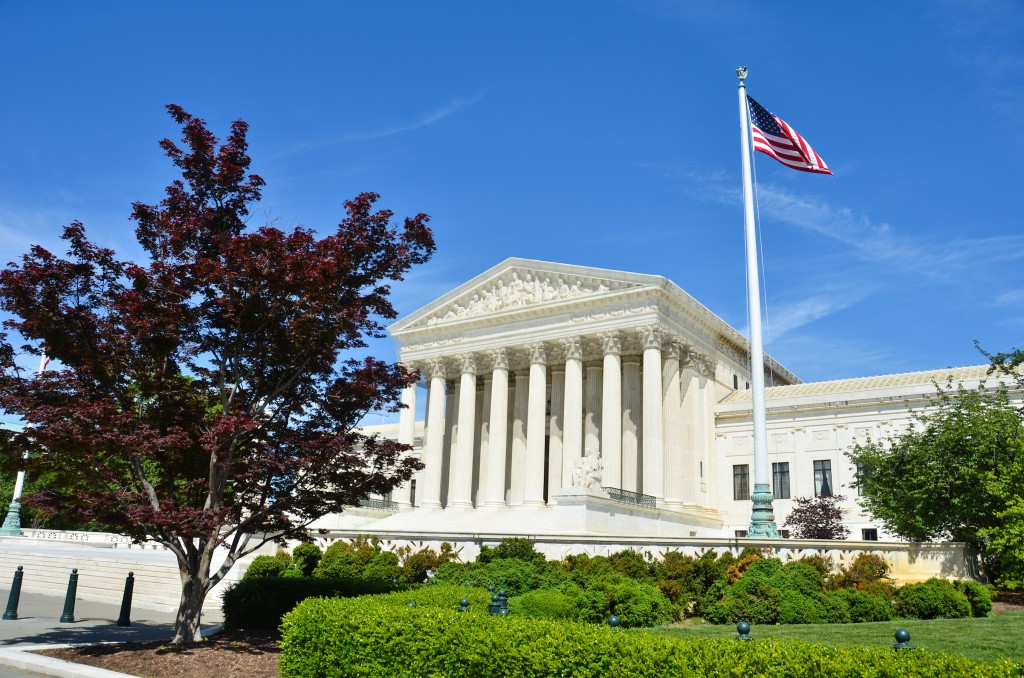
What Will the Supreme Court Say About Same-sex Marriage?
Stanley Carlson-Thies
On June 29 or 30, most likely, the US Supreme Court will issue a ruling in the same-sex marriage cases that are grouped as “Obergefell v. Hodges.” Put simply, the issue is whether every state must allow same-sex couples to get married. What should faith-based organizations do to prepare for the decision?
Many, though not all, religions and denominations have long-held and continue to believe that marriage is an opposite-sex relationship. If marriage is redefined to include same-sex couples, not only persons but also organizations that remain committed to the previous view may–unless new protections are created–encounter challenging decisions.
For example, will it become illegal for a religious school to teach its religious convictions about marriage? Will organizations that maintain the traditional definition of marriage lose their tax-exempt status? Will a marriage counseling service be able to counsel about marriage the way the service’s religious convictions understand marriage to be? The list goes on.
These challenges occur not because these religious organizations are dedicated to political or legal efforts to define marriage in one way or another for our nation. They simply want to conduct their operations and provide their services in a way that reflects and honors their foundational religious convictions, including their convictions about such an important matter as marriage.
And yet if the government’s definition departs significantly from the religion’s definition and the government view is made mandatory via nondiscrimination rules, employment law, licensing standards, requirements that recipients of government funds must follow, and so on, then the organizations may well be put in a terrible bind: follow your convictions about marriage and face lawsuits, fines, or a requirement to cease operating, or, to maintain your legality, act as if the government’s new view of marriage is acceptable and the religious view can be discarded or be kept restricted to the walls of the worship building.
Yet, if the Supreme Court, rules for same-sex marriage, it can specifically remind legislators and government officials that they are duty bound to protect the free exercise of religion, including when religion shapes the operations and services of faith-based organizations like schools, adoption agencies, religious counseling programs, and residential facilities. And then federal, state, and local officials can set about the challenging, but essential, task of protecting institutional religious freedom in light of same-sex marriage.
To some, the most important choice the Supreme Court will be making is whether to honor democratic choices or instead to impose its own views: whether to allow the peoples of the various states to define marriage as their consciences compel them to or to step in and require one view across the whole nation.
That’s an important consideration—but even more important is that governments, whether motivated by voter choices or by court rulings, must uphold public justice and respect religious exercise and conscience, not only as an individual matter but when organizations regard themselves as duty bound to go against the current legal requirements.
Whatever the Supreme Court rules, the most important action that faith-based organizations must take is to examine their stated and unstated policies and practices and make sure that these are aligned with and rooted in the religious convictions they claim to be guided by. This is important legally: a religious organization cannot easily claim religious freedom protections for its countercultural ways if it is not evident to judges and other observers that those countercultural ways are due to its religious convictions.
And consistency and transparency are equally important for reasons of mission: if the organization exists to exemplify and further faith-inspired values, then those faith convictions ought to guide how the organization operates and serves.
